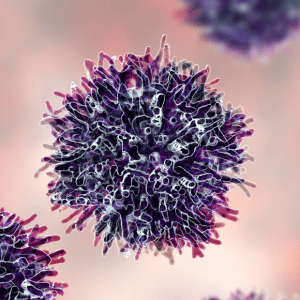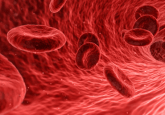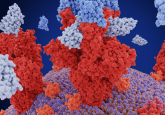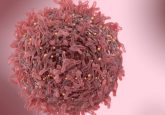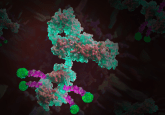AACR Virtual Annual Meeting II
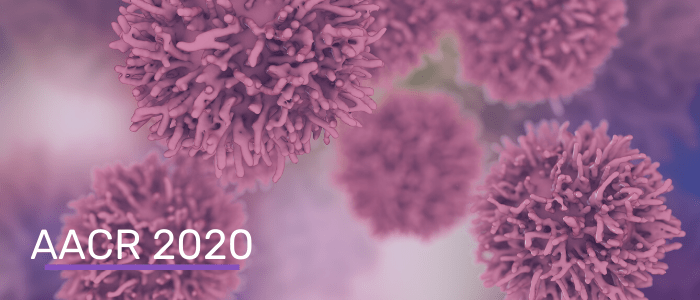
Here are our highlights from the AACR Virtual Annual Meeting II (22-24 June 2020).
Check out our favorite:
Plus, the Editor’s two cents.
News
Early-onset cancer: an indication of germline mutations?
A novel study explores the genome of young adults with early-onset cancer to determine their likelihood of containing germline mutations that could lead to further cancers.

Personalized cancer vaccine in killer combo with immunotherapy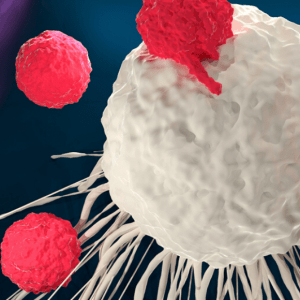
Personalized cancer vaccine RO7198457 and immunotherapy drug atezolizumab work cohesively to induce tumor-specific immune responses in 73% of patients.
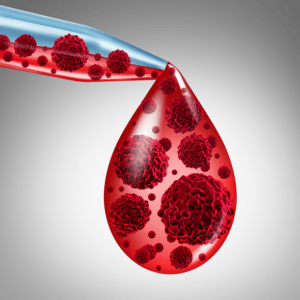 Survival in Hispanic blood cancer patients near the USA/Mexico border is significantly reduced
Survival in Hispanic blood cancer patients near the USA/Mexico border is significantly reduced
A research team from the Health Sciences Center of Texas Tech University (El Paso, TX, USA) investigated differences in survival in Hispanic blood cancer patients living near the USA/Mexico border. The team found significant health disparities and much worse survival odds in Hispanics, despite a younger age of diagnosis.
Tweets
Dr. Prasad's presentation on exceptional responders is very thought provoking–are targeted therapies really that much effective than chemotherapies? #AACR20 https://t.co/I7NQysfSnN
— Lee Jones (@LeeJonesMBA) June 22, 2020
#AACR20. Grateful to Dr. @AshaniTW for concluding her @AACR Plenary talk w/ a call to action to mentor & sponsor women, Black, & Latinx scentists to improve #diversity, #equity, & inclusion in #STEM. #WomenInSTEM #BlackWomenInMedicine #BlackMenInMedicine #LatinxInMedicine #DEI pic.twitter.com/AfTHrFoiuL
— Tatiana Prowell, MD (@tmprowell) June 22, 2020
Dear Colleagues at #AACR20
African American & Latinos make us 3⃣2⃣% of the US population🇺🇸yet are woefully underrepresented in medical trials.
We NEED to increase the representation of minority populations in clinical trials‼️
Underrepresentation kills.@OncoAlert 🚨 pic.twitter.com/EB58V5saFN
— Gil Morgan, MD (@weoncologists) June 23, 2020
Getting ready for #AACR20 from Trondheim, Norway pic.twitter.com/5zElyvCYYI
— Anine Larsen Ottestad (@LarsenAnine) June 22, 2020
So reassuring to hear @NIHDirector talk in #AACR20 virtual meeting about US gov't #COVID19 initiatives to develop therapeutics, blood tests for antibodies, and vaccines. GO SCIENCE! pic.twitter.com/Fzc0CeiRwW
— Janet Freeman-Daily (@JFreemanDaily) June 24, 2020
New cancer models on the horizon – the cell line factory from @broadinstitute https://t.co/9DLV35Dpt5 #AACR20 pic.twitter.com/OAqiIaLkqE
— Daniel Gerlach (@gerlach_d) June 23, 2020
COVID-19 continues to expose already-existing healthcare disparities. Lessons from NYC. Great discussion by Dr. Lisa Newman @nyphospital on parallels w/ breast cancer disparities and a call-to-action to all public health practitioners. #AACR20 #LCSM pic.twitter.com/myFXysCLXm
— LUNGevity Foundation (@LUNGevity) June 23, 2020
https://twitter.com/margaretsaira/status/1275516730836738052?s=20
Presentations
You can catch up on all AACR Virtual Annual Meeting II presentations on demand, and registration is completely free. Here’s the talks we recommend catching up on:
- Opening plenary session: turning science into lifesaving care
- Exceptional responders and long-term survivors
- Under-representation in clinical trials and the implications for drug development
- Racism and racial inequities in cancer research
- COVID-19 and cancer research
- Recent advances in applications of cell-free DNA
Editor’s two cents
Special sessions: COVID-19. There were two last-minute additions to the AACR Virtual Annual Meeting II program, as a result of recent world events.
The first was COVID-19 and cancer research. The AACR Virtual Annual Meeting I also had a plenary session on the impact of COVID-19 on cancer patients. However, this was in late April when the number of COVID-19 cases in many countries had not yet reached their peak, and any conclusions were drawn mainly from the first published population studies.
The general consensus during this time was that those with cancer were indeed more vulnerable to severe consequences of COVID-19. However, one study from scientists at Gustave Roussy cancer center (Paris, France) did not find any evidence that their patients were more aggressively impacted by COVID-19 than the general French population, unless their immune system was more impaired – they were frail or had hematological diseases, advanced stage disease, or chemotherapy within the past 3 months.
The session in the AACR Virtual Annual Meeting II instead focused wholly on immunology, including potential pre-existing immunity to SARS-CoV-2 infection, as well as T-cell response, immune health profiling and myeloid cells in COVID-19.
Though more of the basic science is now understood, there is still a long way to go for the thorough understanding of SARS-CoV-2 infection and its impact on those with cancers. Of greater concern now will be the side-effect of this pandemic on diagnoses and treatments for those with cancer.
Based on statistics from the UK, where over 2 million routine screening appointments were missed and upwards of 24,000 cases of cancer have potentially gone undiagnosed during the COVID-19 pandemic, it is indeed worrying. Patients have had their surgeries cancelled and treatments halted due to the pandemic, and potentially life-saving trials have been cancelled due to a lack of resources. Already there are now, unfortunately, personal stories of those whose cancers have become untreatable and inoperable, and those numbers are set to rise.
The second special COVID-19 session focused on minorities in cancer research, specifically on health inequities and disparities in the COVID-19 pandemic and the impact on cancer care among racial and ethnic minorities and the medically underserved.
The inclusion of this session was spurred by the evident racial disparities in death rates from COVID-19 in the USA. There were 22.7 deaths per 100,000 white people, and 54.5 deaths per 100,000 Black people (correct as of 19 May). Racial and ethnic inequities have always existed in healthcare and the COVID-19 pandemic has been the vehicle to shine a bright spotlight on these. Leading cancer researchers presented their observations, evidence and perspective on the health inequities and disparities that have been brought to the forefront during this pandemic, and discussed how this exasperates those that exist in cancer research and care.
Watch out for the BioTechniques interview with Dr. Folasade May – cancer physician and health equity researcher – coming soon.
